- Home
- Daphne Du Maurier
Don't Look Now Page 6
Don't Look Now Read online
Page 6
'And the signora?' rapped the police officer angrily. 'What happen to the signora?'
'The signora, my wife, is safe in England,' explained John patiently. 'I talked to her on the telephone just after seven. She did join the charter flight from the airport, and is now staying with friends.'
'Then who you see on the vaporetto in the red coat?' asked the furious police officer. 'And if not these signorine here, then what signorine?'
'My eyes deceived me,' said John, aware that his English was likewise becoming strained. 'I think I see my wife and these ladies but no, it was not so. My wife in aircraft, these ladies in pension all the time.'
It was like talking stage Chinese. In a moment he would be bowing and putting his hands in his sleeves.
The police officer raised his eyes to heaven and thumped the table. 'So all this work for nothing,' he said. 'Hotels and pensiones searched for the signorine and a missing signora inglese, when here we have plenty, plenty other things to do. You maka a mistake. You have perhaps too much vino at mezzo giorno and you see hundred signore in red coats in hundred vaporetti.' He stood up, rumpling the papers on his desk. 'And you, signorine,' he said, 'you wish to make complaint against this person?' He was addressing the active sister.
'Oh no,' she said, 'no, indeed. I quite see it was all a mistake. Our only wish is to return at once to our pension.'
The police officer grunted. Then he pointed at John. 'You very lucky man,' he said. 'These signorine could file complaint against you--very serious matter.'
'I'm sure,' began John, 'I'll do anything in my power ...' 'Please don't think of it,' exclaimed the sister, horrified. 'We would not hear of such a thing.' It was her turn to apologise to the police officer. 'I hope we need not take up any more of your valuable time,' she said.
He waved a hand of dismissal and spoke in Italian to the underling. 'This man walk with you to the pension,' he said. 'Buona sera, signorine,' and, ignoring John, he sat down again at his desk.
'I'll come with you,' said John. 'I want to explain exactly what happened.'
They trooped down the stairs and out of the building, the blind sister leaning on her twin's arm, and once outside she turned her sightless eyes to John.
'You saw us,' she said, 'and your wife too. But not today. You saw us in the future.'
Her voice was softer than her sister's, slower, she seemed to have some slight impediment in her speech.
'I don't follow,' replied John, bewildered.
He turned to the active sister and she shook her head at him, frowning, and put her finger on her lips.
'Come along, dear,' she said to her twin. 'You know you're very tired, and I want to get you home.' Then, sotto voce to John, 'She's psychic. Your wife told you, I believe, but I don't want her to go into trances here in the street.'
God forbid, thought John, and the little procession began to move slowly along the street, away from police headquarters, a canal to the left of them. Progress was slow, because of the blind sister, and there were two bridges. John was completely lost after the first turning, but it couldn't have mattered less. Their police escort was with them, and anyway, the sisters knew where they were going.
'I must explain,' said John softly. 'My wife would never forgive me if I didn't,' and as they walked he went over the whole inexplicable story once again, beginning with the telegram received the night before and the conversation with Mrs Hill, the decision to return to England the following day, Laura by air, and John himself by car and train. It no longer sounded as dramatic as it had done when he had made his statement to the police officer, when, possibly because of his conviction of something uncanny, the description of the two vaporettos passing one another in the middle of the Grand Canal had held a sinister quality, suggesting abduction on the part of the sisters, the pair of them holding a bewildered Laura captive. Now that neither of the women had any further menace for him he spoke more naturally, yet with great sincerity, feeling for the first time that they were somehow both in sympathy with him and would understand.
'You see,' he explained, in a final endeavour to make amends for having gone to the police in the first place, 'I truly believed I had seen you with Laura, and I thought ...' he hesitated, because this had been the police officer's suggestion and not his, 'I thought that perhaps Laura had some sudden loss of memory, had met you at the airport, and you had brought her back to Venice to wherever you were staying.'
They had crossed a large square and were approaching a house at one end of it, with a sign Perisione' above the door. Their escort paused at the entrance.
'Is this it?' asked John.
'Yes,' said the sister. 'I know it is nothing much from the outside, but it is clean and comfortable, and was recommended by friends.' She turned to the escort. 'Grazie,' she said to him, 'grazie tanto.'
The man nodded briefly, wished them 'Buona notte,' and disappeared across the campo.
'Will you come in?' asked the sister. 'I am sure we can find you some coffee, or perhaps you prefer tea?'
'No, really,' John thanked her, 'I must get back to the hotel. I'm making an early start in the morning. I just want to make quite sure you do understand what happened, and that you forgive me.'
'There is nothing to forgive,' she replied. It is one of the many examples of second sight that my sister and I have experienced time and time again, and I should very much like to record it for our files, if you will permit it.'
'Well, as to that, of course,' he told her, 'but I myself find it hard to understand. It has never happened to me before.'
'Not consciously, perhaps,' she said, 'but so many things happen to us of which we are not aware. My sister felt you had psychic understanding. She told your wife. She also told your wife, last night in the restaurant, that you were to experience trouble, danger, that you should leave Venice. Well, don't you believe now that the telegram was proof of this? Your son was ill, possibly dangerously ill, and so it was necessary for you to return home immediately. Heaven be praised your wife flew home to be by his side.'
'Yes, indeed,' said John, 'but why should I see her on the vaporetto with you and your sister when she was actually on her way to England?'
'Thought transference, perhaps,' she answered. 'Your wife may have been thinking about us. We gave her our address, should you wish to get in touch with us. We shall be here another ten days. And she knows that we would pass on any message that my sister might have from your little one in the spirit world.'
'Yes,' said John awkwardly, 'yes, I see. It's very good of you.' He had a sudden rather unkind picture of the two sisters putting on headphones in their bedroom, listening for a coded message from poor Christine. 'Look, this is our address in London,' he said. 'I know Laura will be pleased to hear from you.'
He scribbled their address on a sheet torn from his pocket-diary, even, as a bonus thrown in, the telephone number, and handed it to her. He could imagine the outcome. Laura springing it on him one evening that the 'old dears' were passing through London on their way to Scotland, and the least they could do was to offer them hospitality, even the spare-room for the night. Then a seance in the living-room, tambourines appearing out of thin air.
'Well, I must be off,' he said. 'Goodnight, and apologies, once again, for all that has happened this evening.' He shook hands with the first sister, then turned to her blind twin. 'I hope,' he said, 'that you are not too tired.'
The sightless eyes were disconcerting. She held his hand fast and would not let it go. 'The child,' she said, speaking in an odd staccato voice, 'the child ... I can see the child ...' and then, to his dismay, a bead of froth appeared at the corner of her mouth, her head jerked back, and she half-collapsed in her sister's arms.
'We must get her inside,' said the sister hurriedly. 'It's all right, she's not ill, it's the beginning of a trance state.'
Between them they helped the twin, who had gone rigid, into the house, and set her down on the nearest chair, the sister supporting her. A woman came running from
some inner room. There was a strong smell of spaghetti from the back regions. 'Don't worry,' said the sister, 'the signorina and I can manage. I think you had better go. Sometimes she is sick after these turns.'
'I'm most frightfully sorry ...' John began, but the sister had already turned her back, and with the signorina was bending over her twin, from whom peculiar choking sounds were proceeding. He was obviously in the way, and after a final gesture of courtesy, 'Is there anything I can do ?', which received no reply, he turned on his heel and began walking across the square. He looked back once, and saw they had closed the door.
What a finale to the evening! And all his fault. Poor old girls, first dragged to police headquarters and put through an interrogation, and then a psychic fit on top of it all. More likely epilepsy. Not much of a life for the other sister, but she seemed to take it in her stride. An additional hazard, though, if it happened in a restaurant or in the street. And not particularly welcome under his and Laura's roof should the sisters ever find themselves beneath it, which he prayed would never happen.
Meanwhile, where the devil was he? The square, with the inevitable church at one end, was quite deserted. He could not remember which way they had come from police headquarters, there had seemed to be so many turnings.
Wait a minute, the church itself had a familiar appearance. He drew nearer to it, looking for the name which was sometimes on notices at the entrance. San Giovanni in Bragora, that rang a bell. He and. Laura had gone inside one morning to look at a painting by Cima da Conegliano. Surely it was only a stone's throw from the Riva degli Schiavoni and the open wide waters of the San Marco lagoon, with all the bright lights of civilization and the strolling tourists? He remembered taking a small turning from the Schiavoni and they had arrived at the church. Wasn't that the alley-way ahead? He plunged along it, but halfway down he hesitated. It didn't seem right, although it was familiar for some unknown reason.
Then he realised that it was not the alley they had taken the morning they visited the church, but the one they had walked along the previous evening, only he was approaching it from the opposite direction. Yes, that was it, in which case it would be quicker to go on and cross the little bridge over the narrow canal, and he would find the Arsenal on his left and the street leading down to the Riva degli Schiavoni to his right. Simpler than retracing his steps and getting lost once more in the maze of back streets.
He had almost reached the end of the alley, and the bridge was in sight, when he saw the child. It was the same little girl with the pixie-hood who had leapt between the tethered boats the preceding night and vanished up the cellar steps of one of the houses. This time she was running from the direction of the church the other side, making for the bridge. She was running as if her life depended on it, and in a moment he saw why. A man was in pursuit, who, when she glanced backwards for a moment, still running, flattened himself against a wall, believing himself unobserved. The child came on, scampering across the bridge, and John, fearful of alarming her further, backed into an open doorway that led into a small court.
He remembered the drunken yell of the night before which had come from one of the houses near where the man was hiding now. This is it, he thought, the fellow's after her again, and with a flash of intuition he connected the two events, the child's terror then and now, and the murders reported in the newspapers, supposedly the work of some madman. It could be coincidence, a child running from a drunken relative, and yet, and yet ... His heart began thumping in his chest, instinct warning him to run himself, now, at once, back along the alley the way he had come--but what about the child? What was going to happen to the child?
Then he heard her running steps. She hurtled through the open doorway into the court in which he stood, not seeing him, making for the rear of the house that flanked it, where steps led presumably to a back entrance. She was sobbing as she ran, not the ordinary cry of a frightened child, but the panic-stricken intake of breath of a helpless being in despair. Were there parents in the house who would protect her, whom he could warn? He hesitated a moment, then followed her down the steps and through the door at the bottom, which had burst open at the touch of her hands as she hurled herself against it.
'It's all right,' he called. 'I won't let him hurt you, it's all right,' cursing his lack of Italian, but possibly an English voice might reassure her. But it was no use--she ran sobbing up another flight of stairs, which were spiral, twisting, leading to the floor above, and already it was too late for him to retreat. He could hear sounds of the pursuer in the courtyard behind, someone shouting in Italian, a dog barking. This is it, he thought, we're in it together, the child and I. Unless we can bolt some inner door above he'll get us both.
He ran up the stairs after the child, who had darted into a room leading off a small landing, and followed her inside and slammed the door, and, merciful heaven, there was a bolt which he rammed into its socket. The child was crouching by the open window. If he shouted for help someone would surely hear, someone would surely come before the man in pursuit threw himself against the door and it gave, because there was no one but themselves, no parents, the room was bare except for a mattress on an old bed, and a heap of rags in one corner.
'It's all right,' he panted, 'it's all right,' and held out his hand, trying to smile.
The child struggled to her feet and stood before him, the pixie-hood falling from her head on to the floor. He stared at her, incredulity turning to horror, to fear. It was not a child at all but a little thick-set woman dwarf, about three feet high, with a great square adult head too big for her body, grey locks hanging shoulder-length, and she wasn't sobbing any more, she was grinning at him, nodding her head up and down.
Then he heard the footsteps on the landing outside and the hammering on the door, and a barking dog, and not one voice but several voices, shouting, 'Open up! Police!' The creature fumbled in her sleeve, drawing a knife, and as she threw it at him with hideous strength, piercing his throat, he stumbled and fell, the sticky mess covering his protecting hands.
And he saw the vaporetto with Laura and the two sisters steaming down the Grand Canal, not today, not tomorrow, but the day after that, and he knew why they were together and for what sad purpose they had come. The creature was gibbering in its corner. The hammering and the voices and the barking dog grew fainter, and, 'Oh God,' he thought, 'what a bloody silly way to die....'
Not after Midnight
I AM A schoolmaster by profession. Or was. I handed in my resignation to the Head before the end of the summer term in order to forestall inevitable dismissal. The reason I gave was true enough--ill-health, caused by a wretched bug picked up on holiday in Crete, which might necessitate a stay in hospital of several weeks, various injections, etc. I did not specify the nature of the bug. He knew, though, and so did the rest of the staff. And the boys. My complaint is universal, and has been so through the ages, an excuse for jest and hilarious laughter from earliest times, until one of us oversteps the mark and becomes a menace to society. Then we are given the boot. The passer-by averts his gaze, and we are left to crawl out of the ditch alone, or stay there and die.
If I am bitter, it is because the bug I caught was picked up in all innocence. Fellow-sufferers of my complaint can plead predisposition, poor heredity, family trouble, excess of the good life, and, throwing themselves on a psychoanalyst's couch, spill out the rotten beans within and so effect a cure. I can do none of this. The doctor to whom I endeavoured to explain what had happened listened with a superior smile, and then murmured something about emotionally destructive identification coupled with repressed guilt, and put me on a course of pills. They might have helped me if I had taken them. Instead I threw them down the drain and became more deeply imbued with the poison that seeped through me, made worse of course by the fatal recognition of my condition by the youngsters I had believed to be my friends, who nudged one another when I came into class, or, with stifled laughter, bent their loathsome little heads over their desks --until the
moment arrived when I knew I could not continue, and took the decision to knock on the headmaster's door.
Well, that's over, done with, finished. Before I take myself to hospital or alternatively, blot out memory, which is a second possibility, I want to establish what happened in the first place. So that, whatever becomes of me, this paper will be found, and the reader can make up his mind whether, as the doctor suggested, some want of inner balance made me an easy victim of superstitious fear, or whether, as I myself believe, my downfall was caused by an age-old magic, insidious, evil, its origins lost in the dawn of history. Suffice to say that he who first made the magic deemed himself immortal, and with unholy joy infected others, sowing in his heirs, throughout the world and down the centuries, the seeds of self-destruction.
To return to the present. The time was April, the Easter holidays. I had been to Greece twice before, but never Crete. I taught classics to the boys at the preparatory school, but my reason for visiting Crete was not to explore the sites of Knossos or Phaestus but to indulge a personal hobby. I have a minor talent for painting in oils, and this I find all-absorbing, whether on free days or in the school holidays. My work has been praised by one or two friends in the art world, and my ambition was to collect enough paintings to give a small exhibition. Even if none of them sold, the holding of a private show would be a happy achievement.
Here, briefly, a word about my personal life. I am a bachelor. Age forty-nine. Parents dead. Educated at Sherborne and Brasenose, Oxford. Profession, as you already know, schoolmaster. I play cricket and golf, badminton, and rather poor bridge. Interests, apart from teaching, art, as I have already said, and occasional travel, when I can afford it. Vices, up to the present, literally none. Which is not being self-complacent, but the truth is that my life has been uneventful by any standard. Nor has this bothered me. I am probably a dull man. Emotionally I have had no complications. I was engaged to a pretty girl, a neighbour, when I was twenty-five, but she married somebody else. It hurt at the time, but the wound healed in less than a year. One fault, if fault it is, I have always had, which perhaps accounts for my hitherto monotonous life. This is an aversion to becoming involved with people. Friends I possess, but at a distance. Once involved, trouble occurs, and too often disaster follows.

 Jamaica Inn
Jamaica Inn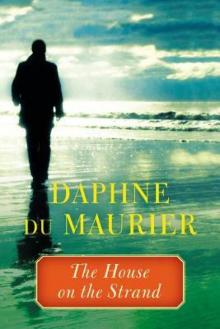 The House on the Strand
The House on the Strand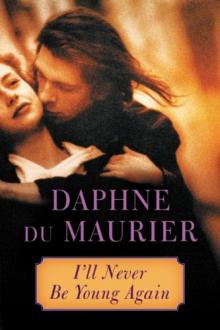 I'll Never Be Young Again
I'll Never Be Young Again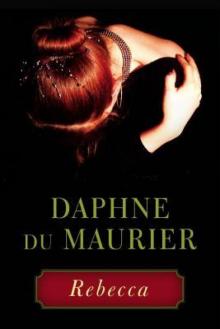 Rebecca
Rebecca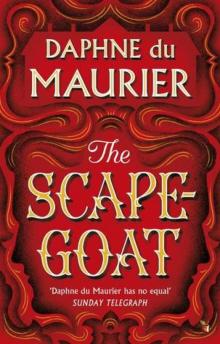 The Scapegoat
The Scapegoat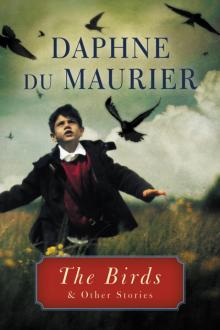 The Birds and Other Stories
The Birds and Other Stories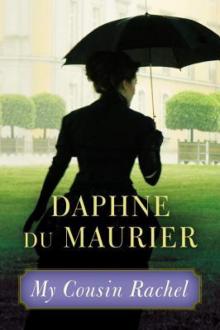 My Cousin Rachel
My Cousin Rachel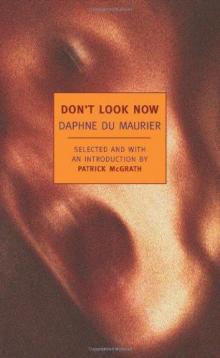 Don't Look Now
Don't Look Now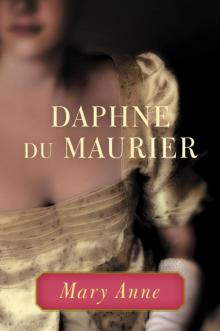 Mary Anne
Mary Anne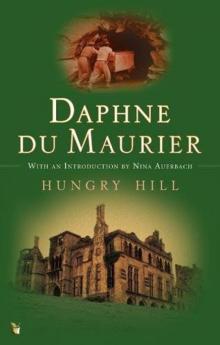 Hungry Hill
Hungry Hill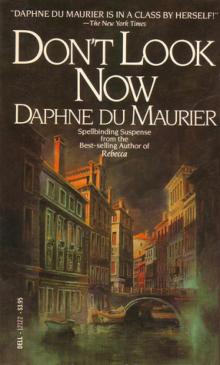 Don't Look Now and Other Stories
Don't Look Now and Other Stories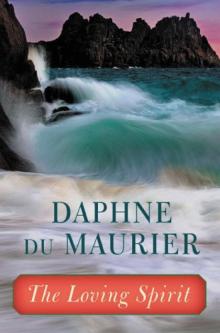 The Loving Spirit
The Loving Spirit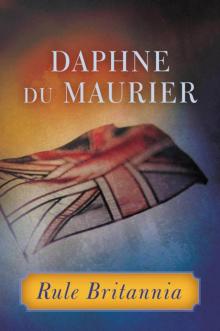 Rule Britannia
Rule Britannia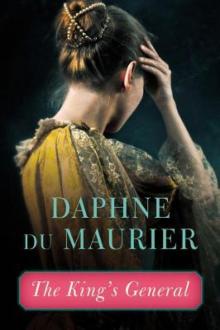 The King's General
The King's General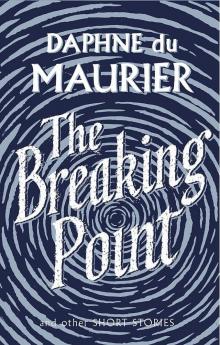 The Breaking Point: Short Stories
The Breaking Point: Short Stories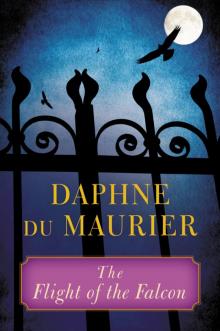 The Flight of the Falcon
The Flight of the Falcon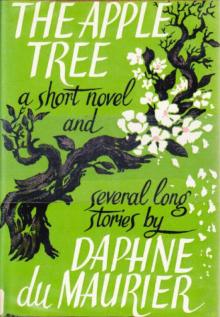 The Apple Tree: a short novel & several long stories
The Apple Tree: a short novel & several long stories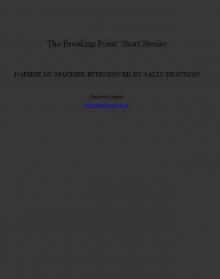 The Breaking Point
The Breaking Point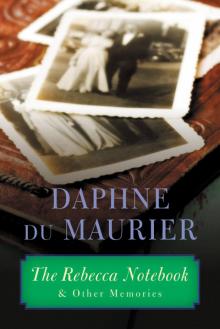 The Rebecca Notebook
The Rebecca Notebook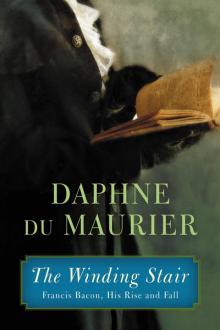 The Winding Stair: Francis Bacon, His Rise and Fall
The Winding Stair: Francis Bacon, His Rise and Fall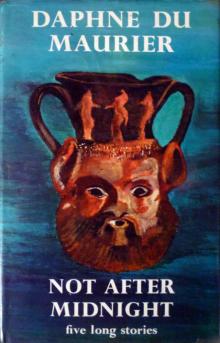 Not After Midnight & Other Stories
Not After Midnight & Other Stories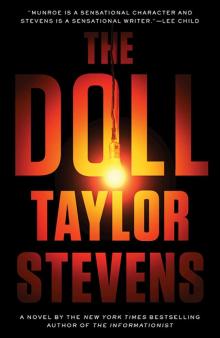 The Doll
The Doll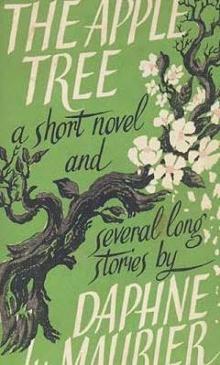 The Apple Tree
The Apple Tree